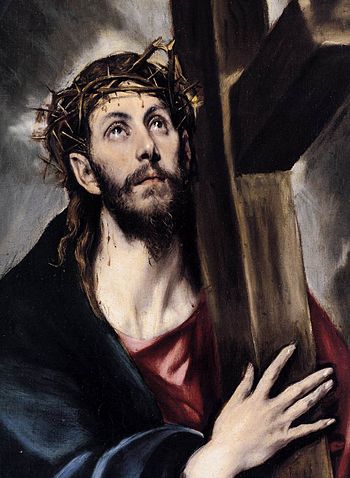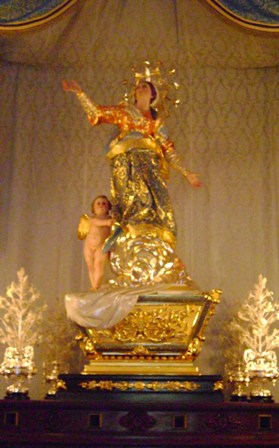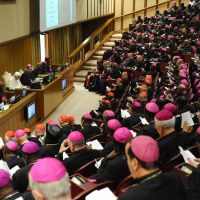I came across this article on Catholic Exchange about how there are many in the Church who want to free Christianity from the cross. And yet, this article makes a good point about how you can’t separate the cross from Christianity because you can’t separate Jesus from the cross. Or, as the article puts it, “There simply cannot be a joyful Easter without there first being a Good Friday.”
The article says that the Church faces a lot of enemies within:
Sadly, at the very highest levels of the Church, there are men who are opposed to the Gospel of Christ. They despise the cross and they want a Christianity free from it. They want a Catholicism sanitized of sacrifice, of repentance, of dying to self, of carrying one’s cross to follow Christ. They want an easy religion—a religion that accommodates us in our sin, that pats us on the back and assures us that everything will be ok, a faith that requires nothing of us.
To create this crossless religion, they believe they must change the Church and her immutable teachings. All their thought is bent upon it, and they are currently using every machination in their power to accomplish their aim. Perhaps their chief method is to question what is settled—to whisper like the serpent of old, “Did God really mean what he said?”
This article seems timely given that the Synod on the Family is taking place. I know that Pope Francis has asked everyone not to politicize the Synod. But I still can’t help but wonder who is more passionate at this point in history — those who want to remove the cross or those who seek to preserve it? I know that preserving the cross won’t make you the most popular. But neither are needles and scalpels and you don’t see doctors giving those up.

The article ends with 4 ways we can keep the cross, and hence our salvation, alive and not be deceived by those who wish to remove it. Here is the summary:
- Learn and embrace the teachings and traditions of the Church
- Receive the sacraments of Reconciliation and the Eucharist
- Stay close to Mary in prayer
- Pray and sacrifice
When looking at this list, I can’t help but think about the Fourth Glorious Mystery of the rosary — Mary’s Assumption into Heaven. As I wrote about in The Rosary for the Rest of Us, God set aside a special place for Mary, not just in her earthly lifetime but in ours as well. She has appeared throughout the ages giving us advice and tools with the promise of eternal joy to those who use them. I think Mary’s guidance can be summed up in some simply, yet important, tasks which mirror what was offered in the Catholic Exchange article:
- Pray — How can you have a close relationship with Jesus if you don’t take the time to talk to him?
- Read the Bible and other Church teachings — How can you love and embrace your faith if you don’t take the time to learn it?
- Fast — How can you love God with your whole being if that being is constantly attached to earthly pleasures?
- Receive the Sacrament of Reconciliation — How can you remain close to God with a barrier of sin between you two?
- Receive the Sacrament of the Eucharist — How can you love and embrace the Catholic Church without receiving her cornerstone sacrament?
When you pray the Fourth Glorious Mystery, remember to integrate these five tasks into your routine. Doing so will not only remind you about the importance of the cross but also embrace it. As Jesus commanded, “If anyone would come after me, let him deny himself and take up his cross and follow me” (Matthew 16:24). Jesus didn’t make the cross optional. It’s as fundamental to our spiritual life as air and water are to our physical one. Following these routines will remind you of the cross’ importance and not let you be deceived by those who wish to whitewash it out of Christianity.
















